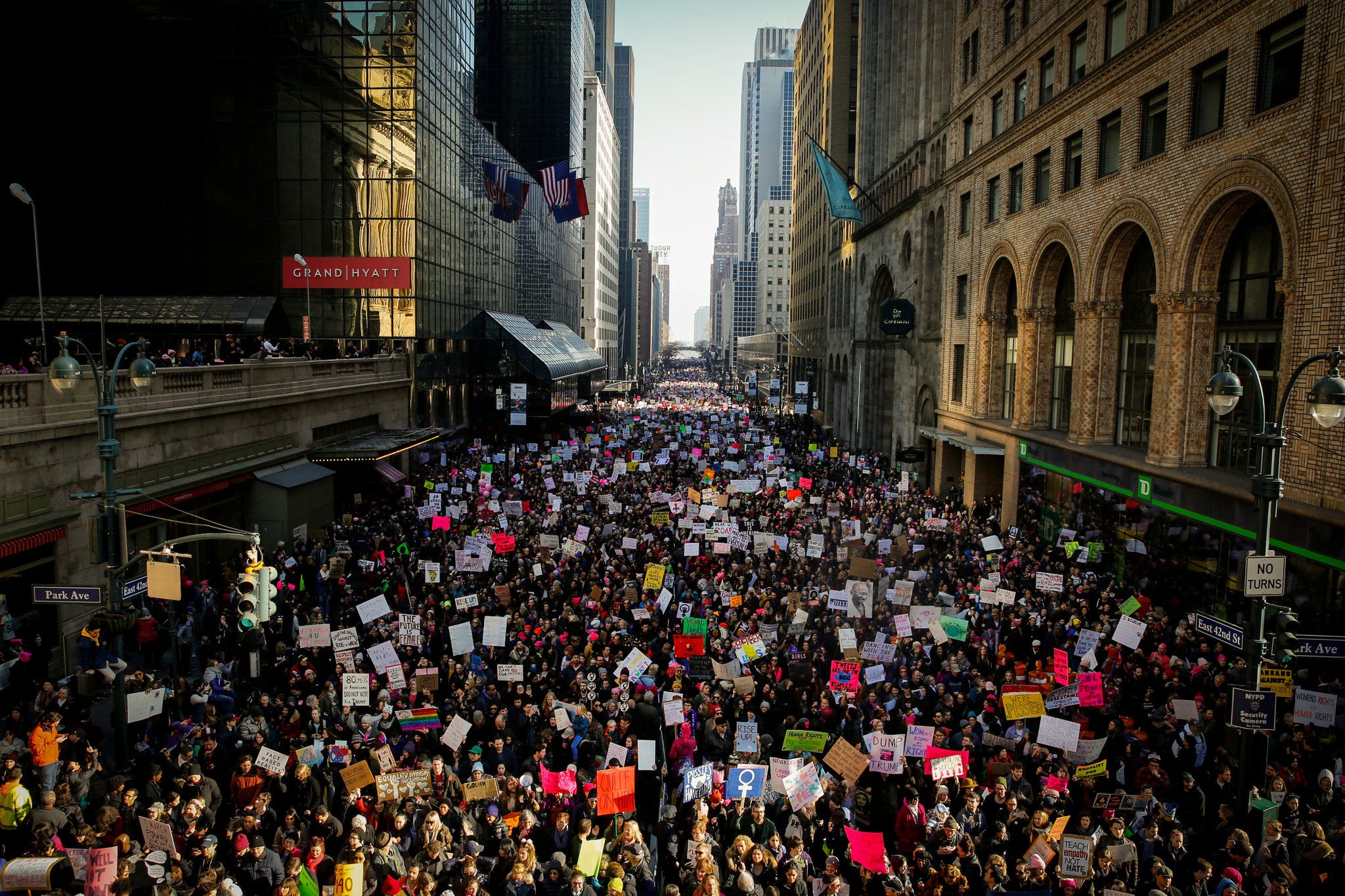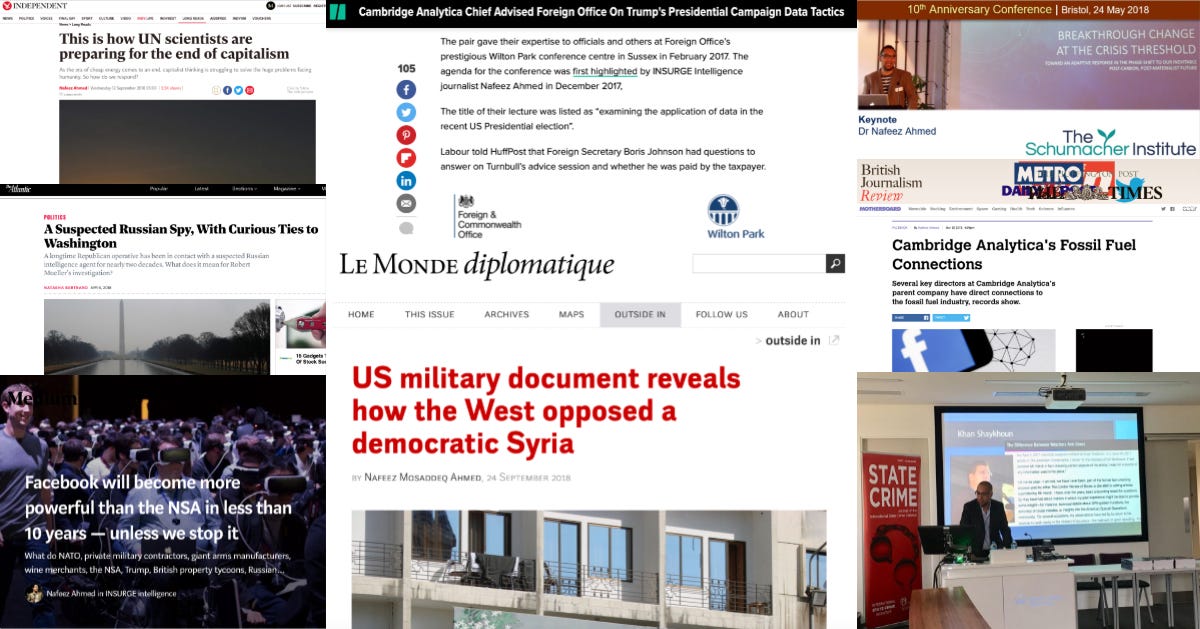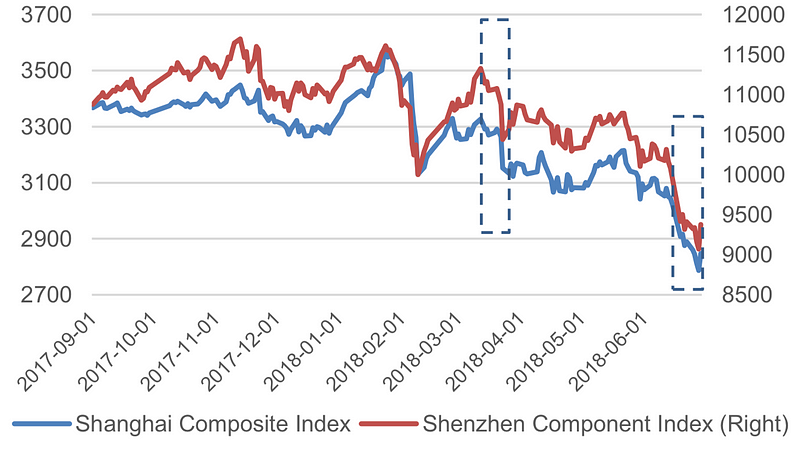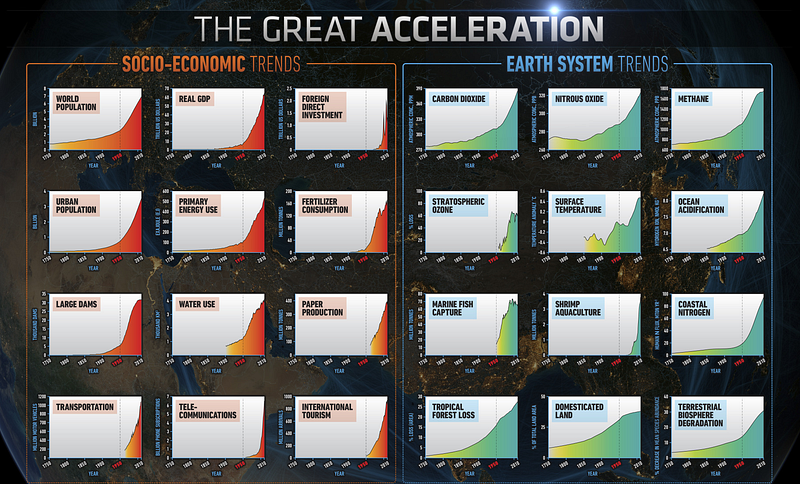How collective intelligence can change your world, right now
An open source toolkit for self and social transformation

News and views on the coming collapse
Home » Posts tagged 'insurge intelligence'
Free your mind, find your power, change the world

We previously exposed the fact that President Donald Trump is fighting a war to protect the establishment from itself, and the rest of us. Now here’s what we do about it.
We’re all feeling it. A sense that, in the Age of Trump, something fundamental has shifted. You feel like you’re going insane. Like everyday brings with it a new battle, a fresh sense of feeling deluged with new, alarming information, the constant experience of being overwhelmed.
In such circumstances it’s not unusual to feel a combination of outrage, resignation, despondency and despair, mingled with internal efforts to re-ignite a sense of pragmatic hope.
But as we begin to develop a systemic, structural and holistic diagnosis of the current moment, doing so opens up greater insight into the possibilities for renewal and revitalization.
To do this, we will deploy a journalistic methodology co-designed in partnership by INSURGE and EXILE. Our approach is an adaptation of the principles of Euclidian geometry, using an analytical framework based on establishing axioms, which we use to explore further postulates, derive meaningful conclusions, and imagine possible scenarios — in a way that allows us to bypass dogmatic polarity, and contribute to a generative dialogue that can advance actionable knowledge.
In How the Trump regime was manufactured by a war inside the Deep State, we set out a systems analysis of how we got to where we are now, giving us insight into how a global systemic crisis threshold has ushered in a conflict at the heart of power.
…click on the above link to read the rest of the article…

The COVID19 pandemic has exposed a strange anomaly in the global economy. If it doesn’t keep growing endlessly, it just breaks. Grow, or die.
But there’s a deeper problem. New scientific research confirms that capitalism’s structural obsession with endless growth is destroying the very conditions for human survival on planet Earth.
A landmark study in the journal Nature Communications, “Scientists’ warning on affluence” — by scientists in Australia, Switzerland and the UK — concludes that the most fundamental driver of environmental destruction is the overconsumption of the super-rich.
This factor lies over and above other factors like fossil fuel consumption, industrial agriculture and deforestation: because it is overconsumption by the super-rich which is the chief driver of these other factors breaching key planetary boundaries.
The paper notes that the richest 10 percent of people are responsible for up to 43 percent of destructive global environmental impacts.
In contrast, the poorest 10 percent in the world are responsible just around 5 percent of these environmental impacts:
“These findings mean that environmental impact is to a large extent caused and driven by the world’s rich citizens.”
The new paper is authored by Thomas Wiedmann of UNSW Sydney’s School of Civil and Environmental Engineering, Manfred Lenzen of the University of Sydney’s School of Physics, Lorenz T. Keysser of ETH Zürich’s Department of Environmental Systems Science, and Julia K. Steinberger of Leeds University’s School of Earth and Environment.
It confirms that global structural inequalities in the distribution of wealth are intimately related to an escalating environmental crisis threatening the very existence of human societies.
Synthesising knowledge from across the scientific community, the paper identifies capitalism as the main cause behind “alarming trends of environmental degradation” which now pose “existential threats to natural systems, economies and societies.” The paper concludes:
…click on the above link to read the rest of the article…
A systems analysis uncovering the light at the end of the tunnel
Five years ago, the Commission on a Global Health Risk Framework for the Future, an independent panel of distinguished scientists, issued a landmark report warning that over the next century, the world would inevitably experience at least one pandemic. The report identified a 20 percent chance that the world would go through as many as four or more pandemics in this time-frame.
Shortly after, I advised Ubisoft on the authenticity of its pandemic-based video-game The Division. The game is set in a post-collapse New York, where a fictional virus, Variola Chimera, spreads rapidly across the city. At the time I was a visiting research fellow at the Global Sustainability Institute at Anglia Ruskin University’s Faculty of Science and Technology, developing a new scientific framework to understand the dynamics of social collapse. Ubisoft asked me to assess, as an independent expert on social crisis, how realistic their scenario was.
Given the extraordinary assumptions of The Division scenario — the fictional virus was a weaponized version of smallpox created by terrorists with a faster seven-day incubation time and a 90 percent mortality rate — the ultra-rapid collapse process it envisaged across multiple critical systems was plausible. But only given those fictional assumptions.
So it’s important to remember that the coronavirus is nowhere near as deadly as this fictional virus, and will have nothing like that impact.
Across the corners of the internet, you may find speculation about how the coronavirus will lead to an apocalyptic breakdown of civilization. On the opposite end, you will hear assurances that everything’s pretty much going to be fine except for, perhaps, an economic downturn and disruption to our normal routines. While it’s important to be aware of the range of possibilities, it’s also important to recognize that we are still very far from major civilizational collapse, but not immune to more specific crises.
…click on the above link to read the rest of the article…
Meanwhile, the bulk of the NSA’s surveillance and “offensive” information warfare capabilities remain completely unknown

On Monday 4th, the New York Times reported that the National Security Agency has “quietly” shut down a controversial phone records surveillance program revealed by whistleblower Edward Snowden in 2013.
The claim was made by a senior Republican congressional aide who told the newspaper that the Trump administration had stopped using the program, which analyses the domestic call and text logs of American citizens, due to technical problems.
On Twitter Snowden hailed the news as a “victory”, while Intercept journalist Glen Greenwald, who broke the Snowden story to international acclaim, took the story at face value. Neither of them raised the obvious question — is the “shut down” of this program merely a smokescreen to continue spying on American phones under new or different secretive programs?

I used to take a victory lap every time one of these stories came out. It felt good to see history vindicate my decision to expose the government’s wrongdoing. Nowadays I just wish it hadn’t taken me so long to speak up. If only I hadn’t been so afraid.✔https://www.politics/nsa-phone-records-program-shut-down.html
Since then, further doubt was cast on the NYT report when NSA chief General Paul Nakasone refused to confirm or deny the story. But he did tell a major security conference on Wednesday that the agency was still “in a deliberative process” about whether to use a revamped version of the vast database of American phone records.
All of this, however, is an elaborate ruse. According to two former top NSA officials interviewed by INSURGE, there is no credible reason to believe that NSA phone surveillance has truly been shut down.
…click on the above link to read the rest of the article…
Seeing the systemic roots of this risk can help us avert catastrophe and build resilience

A senior European Commission economist has warned that a Third World War is an extremely “high probability” in coming years due to the disintegration of global capitalism.
In a working paper published last month, Professor Gerhard Hanappi argued that since the 2008 financial crash, the global economy has moved away from “integrated” capitalism into a “disintegrating” shift marked by the same sorts of trends which preceded previous world wars.
Professor Hanappi is Jean Monnet Chair for Political Economy of European Integration — an European Commission appointment — at the Institute for Mathematical Models in Economics at the Vienna University of Technology. He also sits on the management committee of the Systemic Risks expert group in the EU-funded European Cooperation in Science and Technology research network.
In his new paper, Hanappi concludes that global conditions bear unnerving parallels with trends before the outbreak of the first and second world wars.
Key red flags that the world is on a slippery slope to a global war, he finds, include:
These trends, some of which were visible before the previous world wars, are reappearing in new forms. Hanappi argues that the defining feature of the current period is a transition from an older form of “integrating capitalism” to a new form of “disintegrating capitalism”, whose features most clearly emerged after the 2008 financial crisis.
…click on the above link to read the rest of the article…

For some, the crisis in Venezuela is all about the endemic corruption of Nicolás Maduro, continuing the broken legacy of Chavez’s ideological experiment in socialism under the mounting insidious influence of Putin. For others, it’s all about the ongoing counter-democratic meddling of the United States, which has for years wanted to bring Venezuela — with its huge oil reserves — back into the orbit of American power, and is now interfering again to undermine a democratically elected leader in Latin America.
Neither side truly understands the real driving force behind the collapse of Venezuela: we have moved into the twilight of the Age of Oil.
So how does a country like Venezuela with the largest reserves of crude oil in the world end up incapable of developing them? While various elements of socialism, corruption and neoliberal capitalism are all implicated in various ways, what no one’s talking about — especially the global oil industry — is that over the last decade, we’ve shifted into a new era. The world has moved from largely extracting cheap, easy crude, to becoming increasingly dependent on unconventional forms of oil and gas that are much more difficult and expensive to produce.
Oil isn’t running out, in fact, it’s everywhere — we’ve more than enough to fry the planet. But as the easy, cheap stuff has plateaued, production costs have soared. And as a consequence the most expensive oil to produce has become increasingly unprofitable.
In a country like Venezuela, emerging from a history of US interference, plagued by internal economic mismanagement, combined with external intensifying pressure from US sanctions, this decline in profitability became fatal.
…click on the above link to read the rest of the article…
An open source toolkit for self and social transformation

…click on the above link to read the rest of the article…
My year in review — looking back, looking ahead

Published by INSURGE INTELLIGENCE, a crowdfunded investigative journalism project for people and planet. Please support us to keep digging where others fear to tread.
Over the last few years, the sense that world events are accelerating in a way that is increasingly difficult to keep up with has become tangible.
At talks I often ask my audiences the same question. ‘Have you experienced a sense of acceleration in world events in recent years? That things are speeding up, become more unpredictable?’
Overwhelmingly the answer is yes.
The sense of acceleration is not an illusion. On the one hand, it’s an artifact of the transformation of the global information architecture, where information on world events is now transmitted instantaneously around the world.
On the other, it’s a direct consequence of the fact that world events are increasingly interconnected in complex ways that we are not used to grappling with. But like it or not, understand it or not, that complexity isn’t going away.
The underlying driver of the sense of acceleration is that we stand at the beginning of the end. The world as we know it has started to come to an end, and with it a new world is being born. Exactly what that world will look like is unclear.
What we know is that the old world, and all its old, outmoded paradigms, are gradually grinding to a halt.
Neoliberal finance capitalism as we know it faces the resurgence of crisis, the inevitability of slow growth, declining productivity, and the probability of another global collapse even worse than that which occurred ten year ago.
…click on the above link to read the rest of the article…
The Brexit fiasco and French riots are accelerating symptoms of Europe’s earth system crisis

Everyone’s talking about Brexit. Some about the French riots. But no one’s talking about why they are happening, and what they really mean. They might think they are, but they are usually missing the point.
On 6th May 2010, the Conservative Party took the reins of power for the first time since 1992, propped up with some help from the Liberal Democrats. Hours before the election result, I warned in a blog post that whichever government was elected, it would be the first step in a dramatic shift toward the far-right that would likely sweep across the Western world within 10 years.
“The new government, beholden to conventional wisdom, will be unable or unwilling to get to grips with the root structural causes of the current convergence of crises facing this country, and the world,” I wrote, describing the failure of all three political parties to understand why the heyday of economic growth was unlikely to return.
“This suggests that in 5–10 years, the entire mainstream party-political system in this country, and many Western countries, will be completely discredited as crises continue to escalate while mainstream policy solutions serve largely to contribute to them, not ameliorate them. The collapse of the mainstream party-political system across the liberal democratic heartlands could pave the way for the increasing legitimization of far-right politics by the end of this decade…”
My prediction was astonishingly prescient. The global shift to the far-right began within exactly five years of my forecast, and has continued to accelerate before the decade is even out.
…click on the above link to read the rest of the article…
It goes far beyond the government entertainment liaison offices

As the co-authors of National Security Cinema, we have become known — rather inaccurately — for encouraging two major ideas:-
1. That the government is really important in making movies more militaristic.
2. That Hollywood doesn’t produce dissenting films.
While the first of these is somewhat true it is a simplification, the second is a falsehood.
The government is involved in as wide a range of entertainment projects as you can imagine, from video games to chat shows to blockbusters to docudramas. While many of these were militaristic from conception, before the government got involved, there is no doubt the the Department of Defense (a.k.a. the Pentagon) has encouraged the militarisation of popular culture and is pro-actively seeking further influence in Hollywood.
However, we want to emphasise that government support is by no means a prerequisite for Hollywood making militaristic movies. The sub-genre we have proposed — “national security cinema” — does not necessarily require the involvement of the actual national security apparatus in the production process.
National Security Cinema — Beyond the Government
Some of the examples are truly striking. Consider Rambo III (1988), set in the Soviet war in Afghanistan. The film demonised the Soviets and depicted our allies of the time, the Islamic mujahideen, as heroic — albeit wild and stupid (in keeping with long-standing Hollywood stereotypes about Arabs).
This portrait is consistent with other films set in that war both before and since, such as the James Bond movie The Living Daylights (1987) and Charlie Wilson’s War (2007). While Rambo III did technically receive some support from the State Department, this did not affect the script, and the film very much reflected US government policy on steroids.
…click on the above link to read the rest of the article…

Published by INSURGE intelligence, a crowdfundedinvestigative journalism platform for people and planet. Support us to report where others fear to tread.
China has already declared its intent to retaliate against US President Donald Trump’s new tariffs on $200 billion in Chinese imports, a move set to raise prices on consumer goods for both countries.
Several analysts have demonstrated how Trump’s tariffs will blowback on the US economy. Moody’s Investment Service previously warned that the tariffs would reduce US GDP by 0.25 percent in 2019, to about 2.3 percent. The American economy could take an even bigger hit if Trump proceeds with tariffs on $200 bn worth of Chinese products, Moody’s warned.
But whatever the impact on the American economy, an assessment by the British government’s Foreign Office (FCO) confirms that China’s stock market has indeed taken a direct hit from Trump’s tariffs, that so far is much worse than anything the US has experienced.
The newsletter report, China Financial Policy Focus, published in July by the Foreign Office’s China Economics Network based out of the British Embassy in Beijing, says that:
“Rising trade tensions between the US and China have only added further fuel to the fire, causing the stock market to fall more than 20% against its peak in January and leading the currency to depreciate substantially against the dollar.”
The biggest impact is visible in the Shanghai Composite Index, which has “declined more than 20% since its January 2018 peak. By 28 June the index was below 2800 points.”

And it’s not just the Chinese stock market that has been hit — so has the Chinese currency, the Renminbi (RMB).
“The Chinese currency has been depreciating against the dollar, hitting a one-year low in early July.”
…click on the above link to read the rest of the article…
Study charts the protracted collapse of industrial economic growth and why prosperity must be built on a new economic model. And no, the Singularity won’t save us.

Economic growth isn’t coming back. While some level of growth might continue in coming decades, the boom era of seemingly unlimited material throughput we became accustomed to in the middle of the twentieth century is unlikely to ever return again as we enter a fundamentally new age of diminishing returns
These are the conclusions of a new working paper by leading ecological economist Professor Tim Jackson, Director of the University of Surrey’s Centre for Understanding Sustainable Prosperity (CUSP).
And the UK Ministry of Defence (MoD) is taking notes.
An earlier draft of the paper, notes Jackson, was “prepared as input into the UK Global Strategic Trends Review”, a forecasting research programme run by the MoD’s Defence Concepts and Doctrines Centre (DCDC), which every few years produces an updated Global Strategic Trends report for the MoD and wider UK government. Jackson also acknowledges feedback from MoD officials in revising that draft to create the concurrent version.
Jackson is former Economics Commissioner for the UK government’s Sustainable Development Commission. From 2010 to 2014, he was Director of the Sustainable Lifestyles Research Group, funded by the UK Department for the Environment, Food & Rural Affairs, Scottish Government, and the Economic and Social Research Council. He also advised many other government departments, and held advisory roles for the UN Environment Programme, the UN’s Department of Economic and Social Affairs, the UN Industrial Development Organissation, the European Environment Agency, the European Parliament, and the New Zealand Parliamentary Commissioner for the Environment.

…click on the above link to read the rest of the article…
Two stumbling blocks on the road to regeneration: externalities and subsidies
The prevailing opinion among today’s political and economic elites is that economic globalisation is in some sense inevitable, perhaps even the summit of human achievement. The oft-repeated mantra is that ‘there is no alternative’ and we should adapt to it as best we can.
Rather than being inevitable, economic globalisation is, in fact, the result of a number of carefully chosen policies. Paradoxically, as we shall see, many of these directly contradict the basic tenets of classical free market economic theory, from which the proponents of economic globalisation draw much of their inspiration and authority.
By understanding the key reasons why the global economy behaves as it does today, we will be in a better position to discern the core patterns underlying economic behaviour and, if we choose, to change them. Two key drivers of today’s global economy are externalities and subsidies.
These two factors heavily skew market prices in favour of large-scale industrial goods and services and against small-scale and locally-based economies. These two drivers are further reinforced by the type of money systems that are dominant in today’s global economy that create a structurally dysfunctional growth imperative and wealth disparities with devastating impacts on health, social cohesion, as well as, national and international security. Kenny Ausubel, co-founder of Bioneers, has put it succinctly:
“The world is suffering from the perverse incentives of ‘unnatural capitalism’. When people say ‘free market’, I ask if free is a verb. We don’t have a free market, but a highly managed and often monopolized market. …we have banks and companies that are ‘too big to fail,’ but in truth are too big not to fail.
…click on the above link to read the rest of the article…
Humanity needs new tools to overcome the global crisis of collective insanity

Published by INSURGE intelligence, a crowdfundedinvestigative journalism platform for people and planet. Support us to report where others fear to tread.
The world faces an unprecedented convergence of crises. The ecological crisis, which points to a near uninhabitable planet by end of century if business-as-usual continues, is perhaps its most apocalyptic dimension. But the ecological crisis is intimately bound up with the business-as-usual political, economic, and cultural structures of industrial civilization-as-we-know it.
The crisis
Last year, I reported on an analysis by British investment firm Scroders, which concluded that at our current rate of burning fossil fuels, global average temperatures would rise by as much as 7.8C by 2100. The catastrophic collapse of GDP at this point, by more than 50%, would be the least of our problems. Also unleashed would be uncontrollable amplifying feedback processes that would lead to the loss of most of the world’s coral reefs; the disappearance of major mountain glaciers; the total loss of the Arctic summer sea-ice, most of the Greenland ice-sheet and the break-up of West Antarctica; acidification and overheating of the oceans; catastrophic sea-level rise swamping major cities from London to New York; the collapse of the Amazon rainforest; and the loss of Arctic permafrost; to name just a few.
The ecological crisis is, then, bound up with both our civilization’s addiction to oil, gas and coal; and its addiction to endless economic growth. The imperative to continuously grow our economies has pushed forward an escalating hunger for hydrocarbons as the fuel for that growth. And yet, with every year, we encounter increasing evidence that we are depleting the planet’s natural resources at unsustainable levels — beyond the planet’s capacity to renew itself.
…click on the above link to read the rest of the article…
The Great Acceleration, un-burnable carbon, and global impacts
We are living in extraordinary times and transformation is already happening and accelerating all around us. Many technological, social, and environmental changes are racing up the steep end of the exponential curve. In almost every area of our lives old structures are breaking down as we are witnessing the unfolding impacts of unprecedented technological innovation and its rapid deployment in a globally expanding consumer culture.
‘The Great Acceleration’ is happening within the context of an expanding human population, profound societal and economic transformation on all continents, and — most urgent of all — a dangerous destabilization of global and local climate patterns. There is a scientific consensus that we need to take immediate action if we are to avoid catastrophic climate effects on the future of humankind, the diversity of life and the entire planet.

Already hundreds of thousands of people die every year due to climate change related extreme weather events and millions lose their homes, go hungry or are forced to migrate. Ecosystems everywhere, and the biosphere as a whole, are reaching dangerous tipping points. The prolonged impact of an industrial growth society addicted to fossil fuels and the rapid extraction of non-renewable resources is pushing against planetary boundaries.
Our current economic system is structurally committed to ever-increasing economic growth and intertwined with a financial system that generates money out of nowhere based on debt, and currencies that are not backed up by real material value (see module two). Attempts to resuscitate this structurally dysfunctional system are getting more and more expensive, as the cycles of economic crisis and costly (temporary) recovery are getting shorter and shorter.
…click on the above link to read the rest of the article…